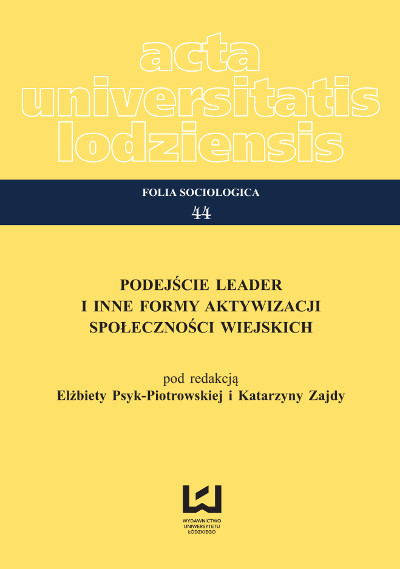The LEADER programme in Central Europe. A new local development policies.
The LEADER programme in Central Europe. A new local development policies.
Author(s): Pascal Chevalier, Marie-Claude MaurelSubject(s): Social Sciences
Published by: Wydawnictwo Uniwersytetu Łódzkiego
Keywords: LEADER Programme; local development; European Rural Development Policy; policy transfer; Central Europe
Summary/Abstract: The implementation of a new European policy based on integrated rural development is an entirely new experiment in the Central European countries, which formerly belonged to the communist system. This paper explores the conditions and the context in which the Local Development Model is being transferred from former member states to new ones, and the way it has been implemented. To examine this issue, we consider the European Union’s Leader programme (an acronym of Liaisons Entre Actions de Développement de l’Economie Rurale), which became the fourth axis of the European Rural Policy (2007–2013). The Leader approach is usually presented as an original way of supporting local development, especially through a Local action group (LAG), which is a local body constituted of public and private stakeholders. We focus on how this approach is put into effects in five post-communist states, four of which are new EU members. (Czech Republic, Hungary, Lithuania, eastern Germany and Poland). Downloading policy to the local communities takes place via various hierarchical modes of governance. Domestic authorities (or transfer operators) transpose and implement European rules and norms, which are more flexible than the former development policies. Looking at the main differences between the countries we explore how the original model is being distorted by domestic institutional factors. Policy transfer processes are not restricted to ministries of agriculture but involve a wide variety of nongovernmental actors mediating the policy transfer to the local stakeholders, who are the acting receivers. The Leader model is experimented in various territorial and social contexts, some more and some less receptive to this new way of thinking and managing local development. This paper is based on the relevant academic literature, on official national sources, and a field research survey. It is a cross-national comparative work that takes into account national and local variations in order to highlight similar- ities and differences in the transfer of a policy model.
Journal: Acta Universitatis Lodziensis. Folia Sociologica
- Issue Year: 2013
- Issue No: 44
- Page Range: 39-53
- Page Count: 15
- Language: English

